The Acer Swift 5 is Acer’s top ultraportable laptop. It’s essentially the closest thing the company has to a MacBook Air competitor. It’s thin and light, it looks nice, and it’s powerful enough for most office use cases (though probably not for demanding computing workloads).
By and large, the past several Swift 5 models I’ve reviewed have been the same package. The chassis is 2.65 pounds and 0.59 inches thick with a sturdy aluminum build. There’s a very nice 2560 x 1600 touch display with very thin bezels around the edges (though I couldn’t for the life of me get it to stay on one color profile — I was constantly turning on Bluelight Shield and seeing it turn off as soon as I opened another app). The device is a step above Acer’s famously student-oriented Swift 3 in build but also in price — my test model is currently going for $1,499 on Acer’s website, while a Swift 3 with similar specs would only be $1,129.
Our review of
Swift 5
Verge Score
7 out of 10
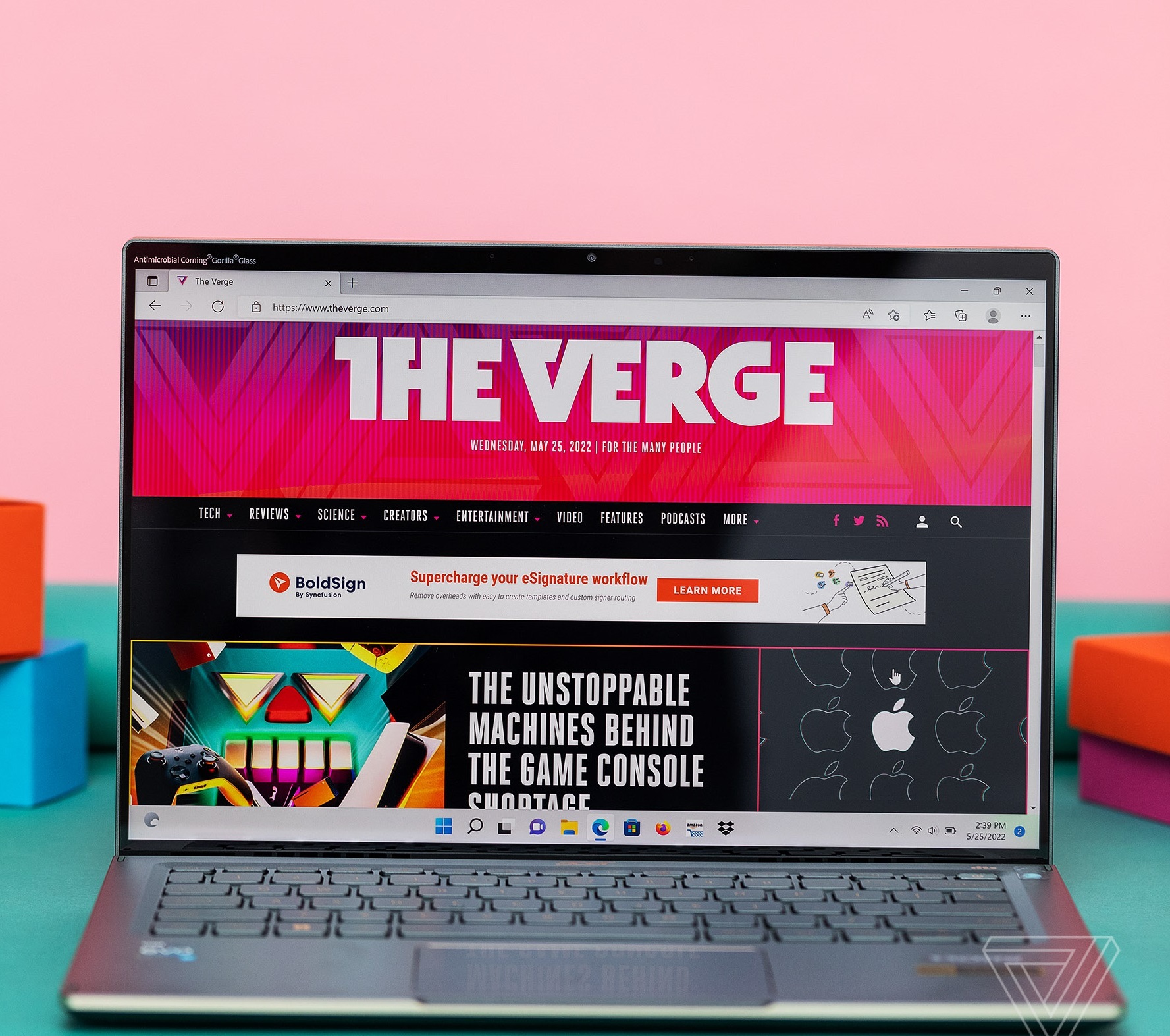
Good Stuff
- Light and portable body
- Adequate port selection
- Fast processor for the price
- 16:10, high-resolution touch display
Bad Stuff
- Bad battery life
- Bloatware pre-installed
- Thin audio
- Expensive for what it offers
Buy for $1,499.99 from Acer
Buy for $1,549.99 from Amazon
For more information on our scoring, see How We Rate.
I’m typing this on the Swift 5 right now. I feel like I’m typing on a nice computer. There’s solid backlighting on the keyboard and some nice gold accents that give the chassis a chic look. I’ve had no trouble getting any of my office work done, including Zoom calls upon piles of Chrome tabs, on the Core i7 processor.
Acer Swift 5 specs (as reviewed)
- 14-inch IPS display, WQXGA 2560 x 1600
- Intel CoreTM i7-1260P 12-Core Processor, 2.1GHz with Intel Turbo Boost Technology 2.0 up to 4.7 GHz
- 16 GB of onboard LPDDR5
- 1 TB PCIe Gen4 SSD, 16 Gb/s, NVMe
- 2.65 pounds (1.2kg)
- Two USB Type-C (USB4, Thunderbolt 4, USB charging), two USB 3.2 Gen 1, HDMI 2.1, headphone/speaker jack, DC-in, Kensington lock slot
- Windows Hello fingerprint reader
- $1,499.99
- Mist Green
I would be quick to recommend this model for general ultraportable use — and perhaps give it the “MacBook Air alternative” sticker that’s much-coveted in the Windows space — if it weren’t for the battery life. I’ve been using this device on battery at medium brightness for my daily office workload (generally 12-20 Chrome tabs with occasional Zoom calls or Spotify streaming), and I’m consistently only getting around four and a half hours of consistent use before it dies.
A comparable MacBook Air would cost up to $320 more than this Swift model, but I would expect to get close to three times the battery life out of it. Even for those who aren’t considering a MacBook, there are all kinds of ultraportables in the Windows space that can get you better battery results. I’ll refer you to the Zenbook S 13 I just reviewed, which is cheaper and lighter than this machine, has a higher-resolution screen, and lasted me close to twice as long with this same workload.
This is all to say that though there are plenty of other great things about this year’s Acer Swift 5, the battery life alone makes it a really tough sell for $1,499. It’s just not where premium laptops are in 2022.
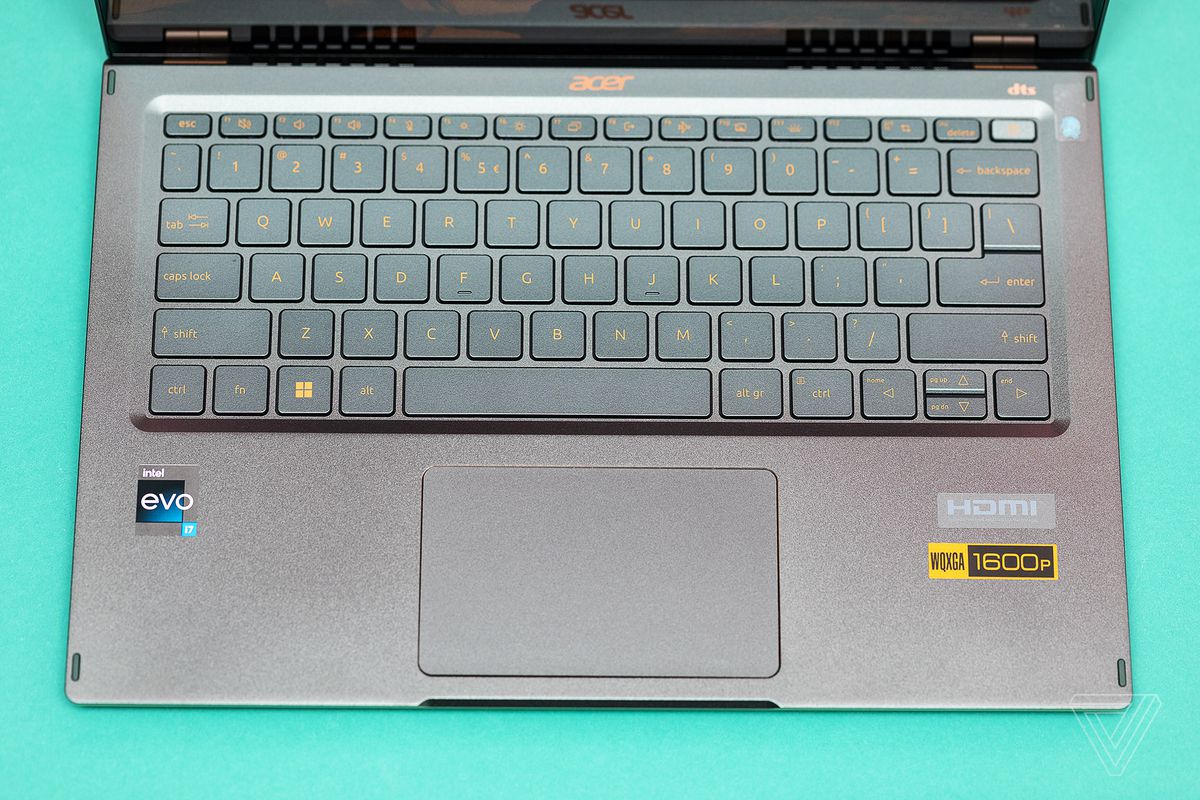
Who should buy the Acer Swift 5?
The only people I’m confident are a good fit for this computer are folks who like the look and feel of the Acer Swift line (which is, at this point, very tried and true). It’s durable, doesn’t pick up fingerprints easily, and doesn’t have much flex in the chassis. And while it’s not the thinnest or lightest laptop on the market, it is quite portable for its size. It is slightly lighter than the MacBook Air, though I wouldn’t say the difference is super noticeable.
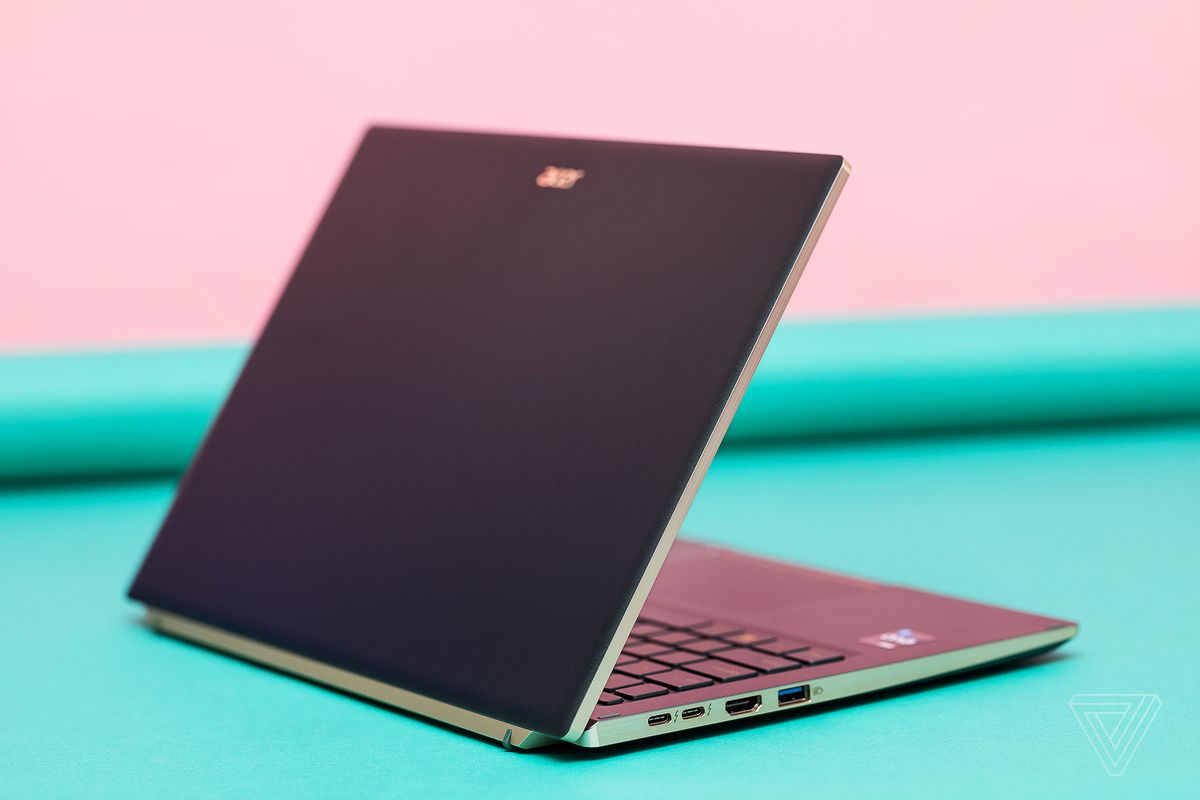
You might also consider it if you like a smooth, silky, and firm touchpad. Many reviewers have praised this one: it’s quite responsive with a loud and decisive click, which is getting harder to find as laptops get thinner. The touchpad is also made of ocean-bound plastic waste (which is nice, though a truly sustainable laptop should be more power-efficient than this one).
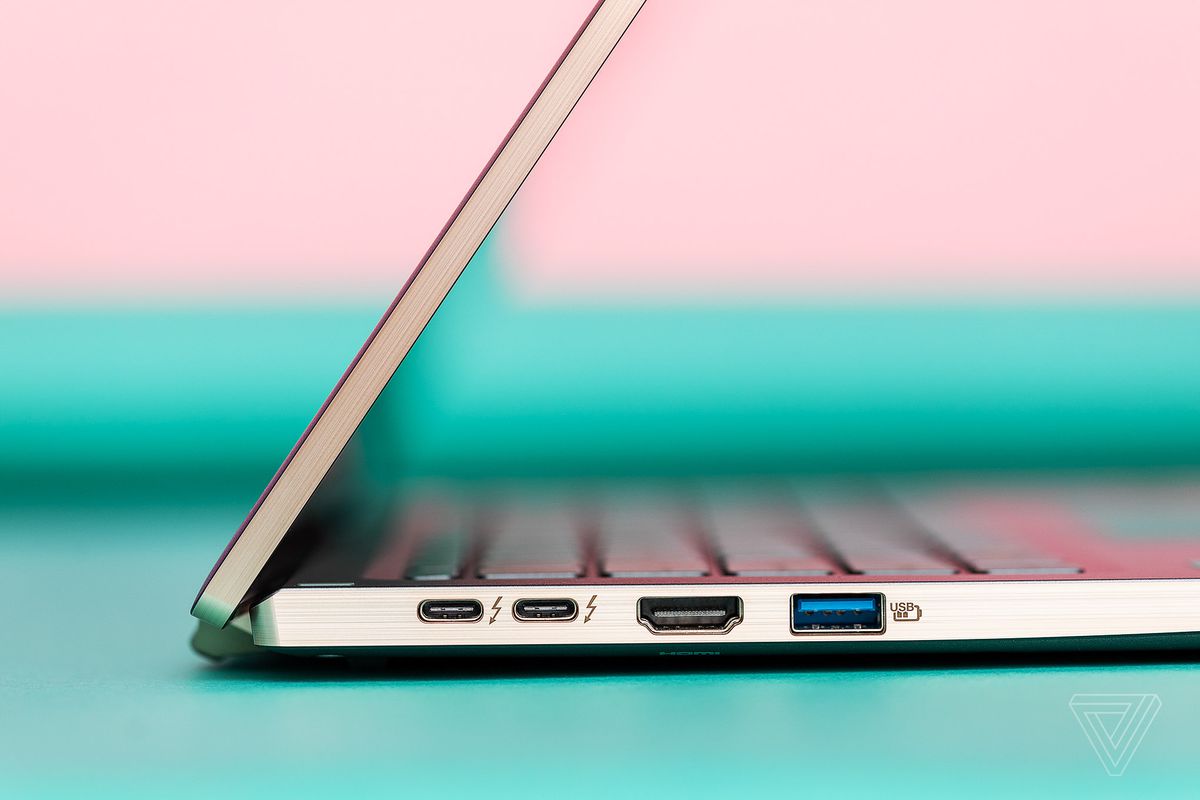
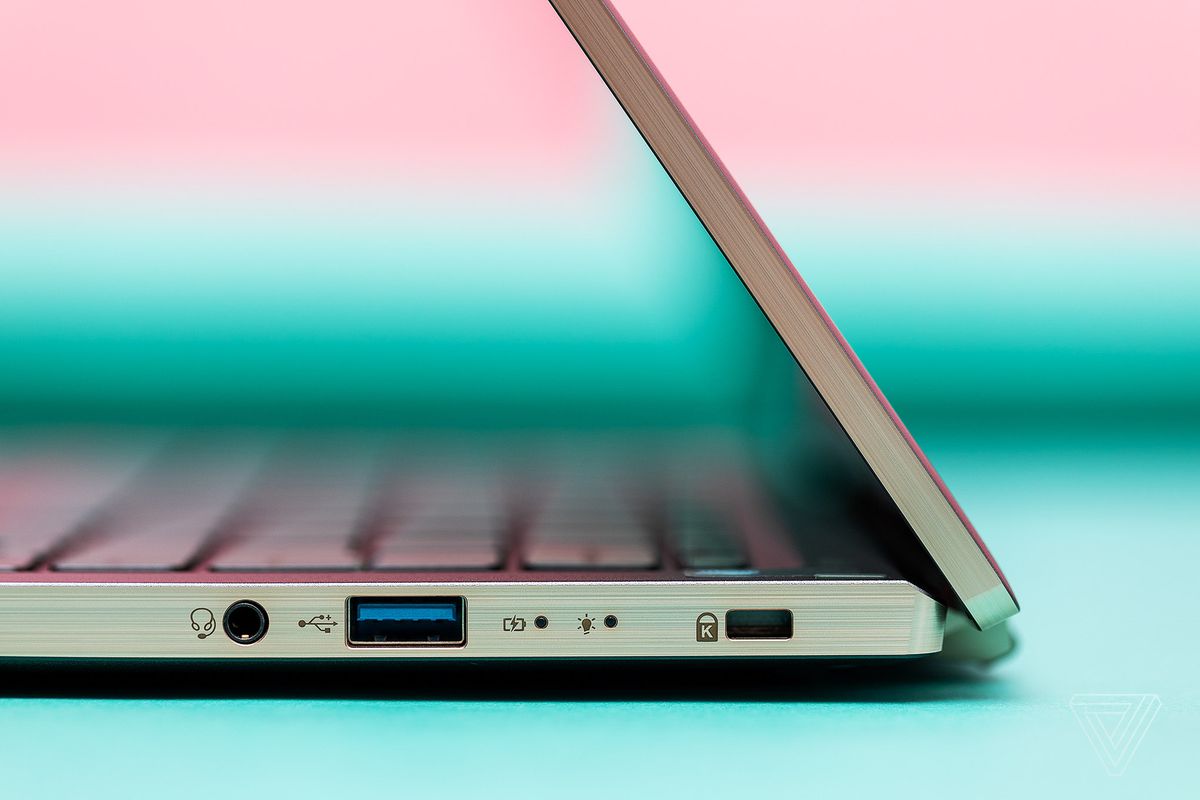
Swift fans may also want to consider the Swift 3. This one isn’t quite as fancy-looking, but it appears to have solid battery life per early reviews (and I’ve got a model in my queue to review as well). Those who need more power than an ultraportable can provide may prefer the new Swift X — this one looks a bit more like the Swift 3 than the Swift 5, but it comes with a discrete GPU inside.
Outside of the Swift-stan (Swifties?) category, I’m hesitant to recommend this too strongly to anyone in particular with the battery life as it is. If you’re looking for a standard ultraportable that you can carry around and use in public, I worry that this one might die on you too fast.
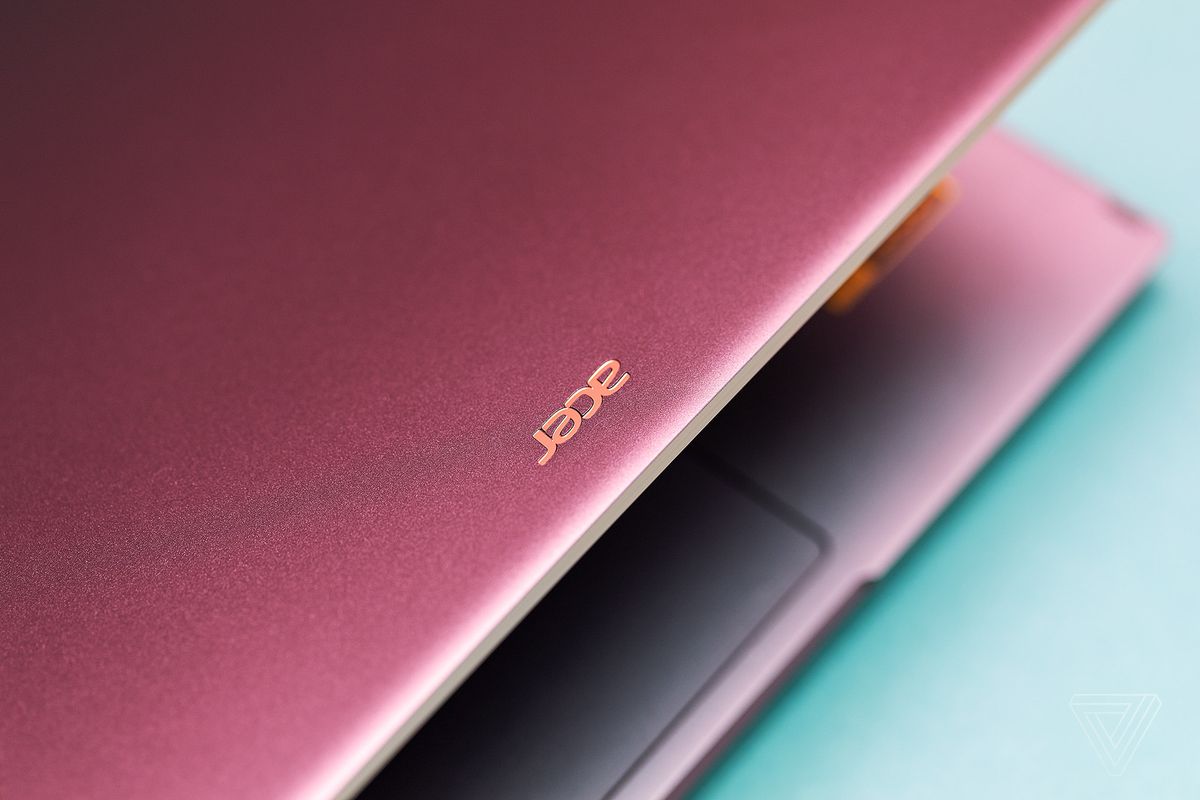
There are certainly ways buyers might improve battery life — lower the screen brightness, lower the resolution, fiddle with profiles, tweak things here and there — but not all customers will know to do this or want to do this regularly. And I think it’s important for a laptop, particularly if it’s targeting the mainstream consumer scene, to work fairly well out of the box.
Acer Swift 5 Accessibility
Acer Swift 5 (as reviewed)
- The letter keys are 0.63 x 0.63 inches with 0.06 inches between them. All keys are backlit. The Caps Lock key has an indicator light. The power button and volume keys are 0.6 x 0.25 inches. The keys are dark blue with gold text and take very little force to depress.
- The speakers reached an average of 71 decibels in my testing.
- The lid cannot be opened with one hand. It can be tilted back to 140 degrees.
- The touchscreen has 2560 x 1600 resolution and reaches 425 nits of brightness.
- The touchpad is 4.1 x 2.5 inches and takes firm force to depress.
- The Zenbook supports fingerprint login but not facial login.
Windows 11
- Windows 11 includes a built-in screen reader (Narrator). It supports third-party screen readers, including NVDA from NV Access and Jaws from Freedom Scientific. A full list of compatible software can be found on Microsoft’s website.
- Windows 11 supports voice typing (accessed by Windows + H) and speech recognition (toggled with Windows + Ctrl + S).
- Color Filters, including inverted, grayscale, red-green, and blue-yellow, can be toggled with Windows + Ctrl + C. Contrast themes are toggled with Alt + Left Shift + Print Screen. Standard Dark Mode and custom colors are also available under Personalization.
- Caption color and size can be customized and appear close to the bottom of the screen.
- The keyboard can be remapped with Microsoft’s PowerToys. Sticky Keys is supported. An on-screen keyboard is available.
- The cursor’s size and speed can be adjusted, and gestures can be remapped in Touchpad Settings.
- Windows 11 supports eye control with external eye trackers.
- Windows 11 includes a Snap Layout feature, accessed by hovering over the Maximize button on any open window.